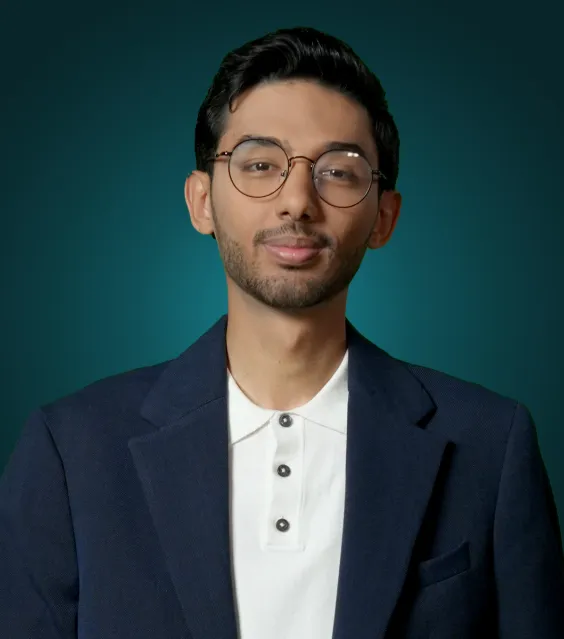Season 17 Innovators
Back to innovators
Mohamed Kahna

About Mohamed
For a bright young scientific mind like Mohamed Kahna, innovation has always been a calling. The Tunisian native has pursued it relentlessly—from building early tech solutions to leading medical innovation projects in Qatar’s healthcare sector.
He holds a bachelor's degree in Surgical Technology and completed a professional fellowship from the Lazord Foundation in 2021. He also earned a Master Business Administration at the Quantic School of Business and Technology in 2023, blending a technical foundation with business acumen.
At age 20, Kahna was recognized as the Youngest Arab Inventor at the Dubai Innovates Initiative during the COVID-19 pandemic.
His accolades also include the Best Presenter Award at the University of Doha for Science and Technology after presenting a paper on the use of social intelligence in surgery.
“I’ve known about Stars of Science since season 5, following the inventors closely always inspired me, “ he says.
After moving to Qatar and working in the medical field, a competition at Qatar University rekindled that dream. There, he met Stars of Science season 16 winner, Yaman Al-Tayyar, and decided to apply.
About the Project
Kahna’s invention is a real-time surgical navigation assistant designed for laparoscopic surgery. Using artificial intelligence and augmented reality, it guides surgeons through visual and auditory cues.
“I plan to improve the accuracy of these minor procedures,” he explains, “my system guides the surgeon by highlighting areas where precision is required.”
The system also addresses the issue of limited visibility in minimally invasive surgeries. Through his work experiences, he quite quickly realized that he could save lives.
The Impact
Kahna’s invention reduces surgical errors and increases safety by offering better visualization and guidance during operations.
“Many medical innovations focus on diagnosis,” he says. “But few address challenges during surgery. This project can change that.”
With its practical application in hospitals and medical centers, it has the potential to influence how operations are performed across the Arab region and beyond.
To aspiring innovators, Kahna offers a simple message: “Transform gaps in the medical field into opportunities.”
“My invention was born out of a realisation that I can bring a positive change in my field. I used this inspiration to create a solution,” he says. “Success comes from continuous learning and persistence.”
Looking ahead, Kahna has set his sights on launching his own company focused on digital surgery. He wants to pioneer the concept of “surgical engineering,” blending technology and medicine into a fully digital surgical ecosystem—starting in Qatar and expanding globally.
